Mali
African powers launched a new multinational military force in the Sahel on Sunday, which France’s President Emmanuel Macron told a regional summit should be fully operational by the autumn and some observers see as forming the basis of an exit strategy for French troops.
Islamist militant groups, some with links to al Qaeda, seized control of Mali’s desert north in 2012.
While they were driven back a year later by a French-led military intervention, they continue to carry out attacks against U.N. peacekeepers, Malian soldiers and civilian targets in violence that has spilled across Mali’s borders.
Macron said France and African powers must work together to “eradicate terrorists, thugs and murderers” in the Sahel.
During Sunday’s summit, leaders of the G5 Sahel bloc – Mali, Mauritania, Burkina Faso, Niger and Chad – formally established the new force, which will operate in coordination with French troops and MINUSMA, Mali’s struggling U.N. peacekeeping mission.
Since taking office in May, Macron has thrown Paris’s weight behind the plan, including through a U.N. resolution voicing support for the force.
“Every day we must combat terrorists, thugs, murderers whose names and faces we must forget, but whom we must steadfastly and with determination eradicate together,” said Macron at the summit in Mali’s capital Bamako.
He said the force, which is expected to consist of around 5,000 troops, needed to be fully operational by this autumn.
The countries of the G5 Sahel bloc began floating the idea of a regional force as early as 2015, but the plan has gained momentum in recent months with Macron’s backing.
“There is urgency because those we’re facing aren’t going to wait,” said Mali’s President Ibrahim Boubacar Keita. “It’s also clear that France alone must not continue to bear the burden of this fight against terrorism.”
With its military headquarters in the northern Mali town of Sevare, the G5 Sahel force will focus on three border zones – one along the frontier between Niger and Mali, another between Mali and Mauritania, and a third straddling the borders between Burkina Faso, Niger and Mali.
OBSTACLES
Paris considers the Sahel a breeding ground for militants and traffickers who pose a threat to Europe. And late on Saturday, JNIM, an al Qaeda-linked group, released a video showing six Western hostages abducted in the region in recent years, among them French citizen Sophie Pétronin.
Macron said France would “put all our energy towards eradicating” those responsible for her kidnapping.
While Sunday’s summit marked a step forward in the plan to set up the G5 Sahel force, it still faces a number of obstacles.
The European Union has pledged around 50 million euros ($57 million) for the operations, and Macron said France would contribute around 8 million euros by the end of the year.
And while Keita said each of the G5 Sahel members had promised to contribute 10 million euros for the force, he said it required a total budget of 423 million euros.
The G5 Sahel nations – among the world’s poorest – are already overstretched.
Chad, Burkina Faso and Niger have deployed around 4,100 soldiers within MINUSMA. Niger and Chad also contribute troops to a similar regional force fighting Nigeria’s Boko Haram militants.
President Idriss Deby of Chad, which possesses the region’s most capable military, has voiced reluctance to further commit his forces unless they receive more international support.
REUTERS



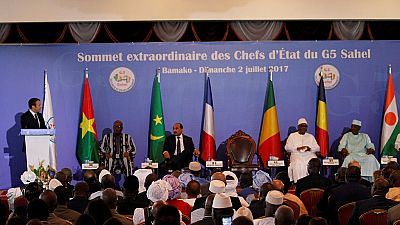

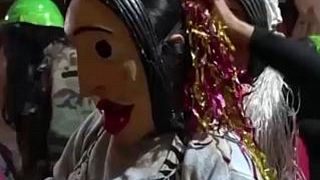
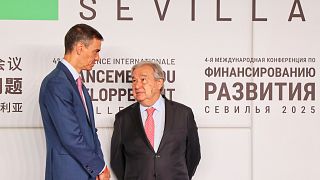

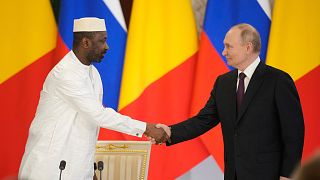
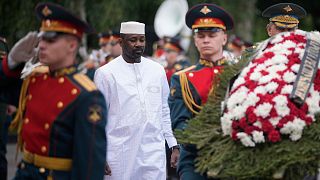
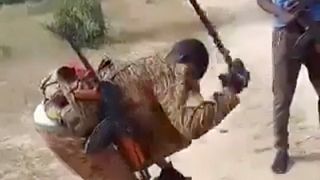



01:00
Detained Chadian opposition leader Succes Masra ends hunger strike
01:15
Kenya court sentences two to jail terms for aiding 2019 hotel attackk
01:41
UN warns of looming famine in Sudan, Gaza and 3 other global hunger hotspots
00:53
Former French president Sarkozy stripped of Legion of Honour medal
01:49
Russia says it plans to boost economic and military cooperation with Africa
Go to video
Brazil's Lula da Silva calls Israel's Gaza offensive 'premediated genocide'